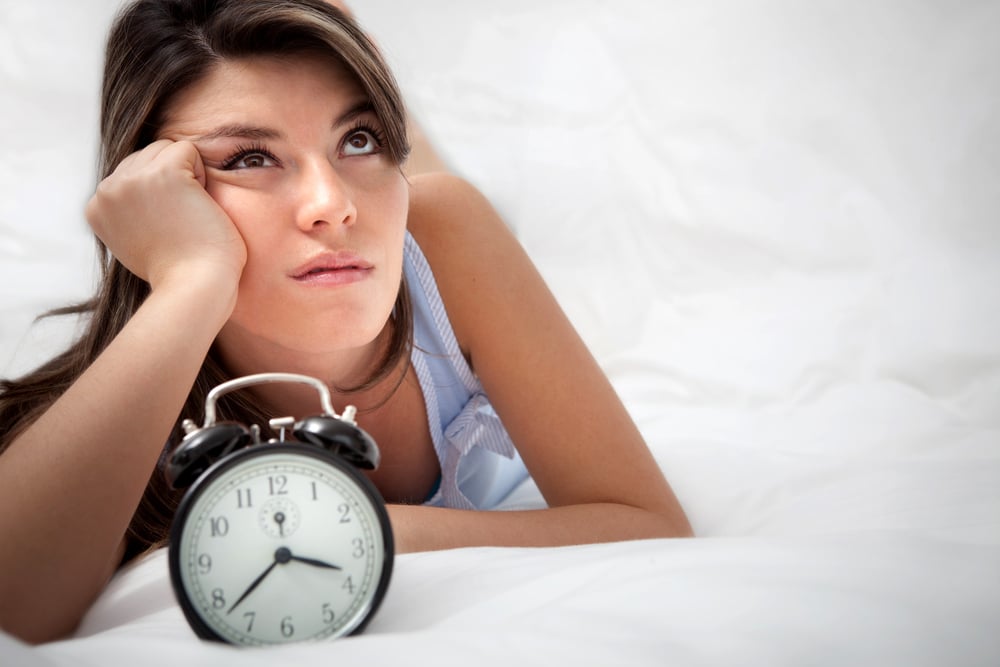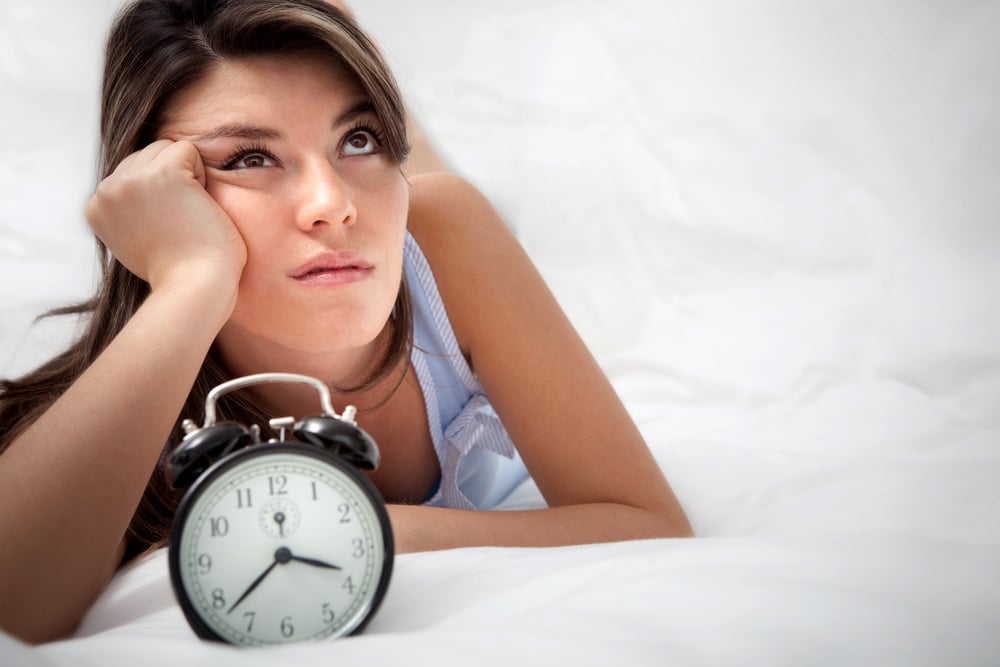
Sleeplessness is Relatively Normal
Pretty much every single one of us has experienced a sleepless night. The constant tossing and turning, feeling like your brain is running at 1 million miles per hour with the constant lack of comfort.
Most of the time this is a one off, as many environmental and psychological factors can change the way we sleep. Things like heat and humidity will decide how comfortable you are, ambient sound can of course have an effect too.
But then we start to look at the way the brain processes information and deals with the events of a day, and things get a little more complicated.
Sometimes a sleepless night can follow a stressful day at work or a major event that occurred recently. Sometimes our brain will constantly analyze a small insignificant moment over and over, blocking the brain from starting its sleep initiation process.
As previously mentioned we have all been there every once in a while and that’s not really an issue. Insomnia becomes an issue when it begins to affect our daily lives.
Insomnia Becoming a Problem
When it becomes a regular thing which starts to impact your day to day life, then there may be a more significant issue.
Research shows that obsessive patterns like Obsessive Compulsive Disorder (OCD) can have a direct impact on the amount of restful sleep we are able to get.
Obsessive and recurring thoughts begin to repeat upon the mind, and a miserable cycle begins. It can often be very hard to know where to begin fixing your sleeplessness, and there is no one scenario that can fix everything.
The Signs of Obsessive Behavior & Mental Illness
Recognizing the beginnings of mental illness can be a crucial step, and not much progress can be made without a diagnosis. Things like anxiety and depression can have a major impact on sleep- and vice versa.
So, if you are experiencing insomnia on a regular basis then seeking the help of a medical professional is crucial. Developing obsessive compulsions, anxiety or further issues is a real possibility when dealing with consistent sleeplessness.
OCD is characterized by obsessions and compulsions. Obsessions are persistent thoughts that seem to take over your mind; often involving thoughts, images or impulses that seem inappropriate or uncontrollable.
These thoughts are suppressed by the subconscious and become compulsions – or repetitive and deliberate action that is undertaken due to a link with an obsession, thus potentially weakening a person’s ability to find deep sleep.
What is Sleep Hygiene & Why is it Important?
Sleep hygiene is essentially the term given to the period building up to switching the lights off and trying to sleep. Having a strong routine and allowing for environments that promote a healthy and uninterrupted sleep session is a crucial part of sleep hygiene.
Every person will have a slightly different approach to sleep hygiene, and some may not even know that they are doing it; having a healthy process in place can actually enhance the quality of your sleep.
Forming habits and developing systems in the build up to sleep actually allows your brain to begin to wind down. It can stop focusing on the tasks of the day, and prepare itself for the healing effects of deep sleep.
Sleep hygiene should encompass your environment and your habits pre-bed, and can lead to a richer sleeping experience, which in turn can improve overall mental health.
Strong sleep hygiene processes can combat the impacts of obsessive behaviors and thoughts during the night, aiding your brain in reaching a restful state.
Improve Your Sleep Hygiene
There are some simple steps you can take to begin improving your own sleep hygiene, and the rewards will be great if you have been suffering from things like daytime sleepiness, constant waking during the night or difficulty falling asleep.
Routines and habits are the key factors in improving your sleep hygiene – getting yourself into a healthy routine before bed can be critical to getting a full sleep cycle.
Switch off your phone at a minimum of half an hour before you try to sleep- the blue lights from your screen and increased brain activity can make sleep harder. Maybe think about starting a nightly stretch, or try some calming yoga to relax the brain and loosen the muscles.
Ensuring your room is not too hot and not too cold is important. Sleep comes much more naturally when the temperature is set to the optimum temperature of 65 degrees Fahrenheit or 18.3 Celsius.
Do something that you can easily replicate every night until it becomes a habitual instinct, and you will find yourself much more prepared to sleep when the time comes.
There are many proven ways in which you can improve your sleep hygiene- just give it a try.
Orthosomnia
Whilst it’s all well and good to be mindful about your sleep patterns and harvest information in order to try for better sleep; the mere fact that you know about your lack of sleep can have negative effects.
When you’re stressed, sleep can be difficult – we all know that. But when you begin to develop stress and anxiety because you’re not sleeping you can enter into a terrible pattern. Some people’s obsessive behaviors can actually turn in the other direction, and over analyzing sleep data can become an obsession in itself.
An increasingly large number of people are beginning to ignore cognitive therapy and actual data in favor of imperfect data sets provided by sleep trackers and other gadgets, leading to stress and worry caused by the knowledge of poor sleep statistics- this is known as orthosomnia.
These gadgets can often set unattainable goals backed up by data that is far from perfect. And when we don’t meet these goals we feel unsuccessful and are made aware that we did not achieve ‘a good night’s sleep’- even though that may not be the case at all.
People can begin to stress heavily over this new information that is suggesting their sleep was poor, or they were not entering a long enough REM cycle. People can incorrectly self-diagnose poor sleep or insomnia and a cycle of stress and anxiety can actually contribute to poor sleep itself.
Whilst there are benefits to these gadgets, if your sleep is becoming a real problem then nothing can replace actual therapies. Orthosomnia is a slippery slope and the hyper-focus experienced by some whilst attempting to get good scores from their fitness trackers simply re-enforces poor sleep.
There are ways you can improve your sleep cycle by making minor changes and improving your sleep hygiene, but remember to seek help from a professional with persisting issues.
Sleep Better, Feel Better
Sleeping is a crucial part of our lives, it aids recovery, allows the brain to relax and makes us feel refreshed. But poor sleep can have a hugely negative impact on our entire lives.
Curbing obsessive behavior can be a very difficult thing to achieve, and unfortunately there is no one thing that can act as a cure all. Sleep is a small part of a complicated system that can lead to mental health issues including obsessive behaviors.
But it is something over which one has more control than it may seem. The importance of curating a healthy sleeping environment and allowing yourself to develop a series of habits and systems is a great way to combat poor sleep, and to help slow the effects that can have on your mental health.
Furthermore, simply ensuring that you have the correct information and understanding of your situation can be just as crucial for your bedtime mindset.
Allow your mind to relax, take control of your nightly ritual and experience a full, refreshing, and complete night’s sleep. Sleep hygiene is essential to quality rest. However, if you have made the right changes to your daily habits that affect sleep and are still experiencing issues, call Alaska’s premiere diagnostic sleep testing facility, Alaska Sleep Clinic. Improve Your Sleep. Improve Your Life.











